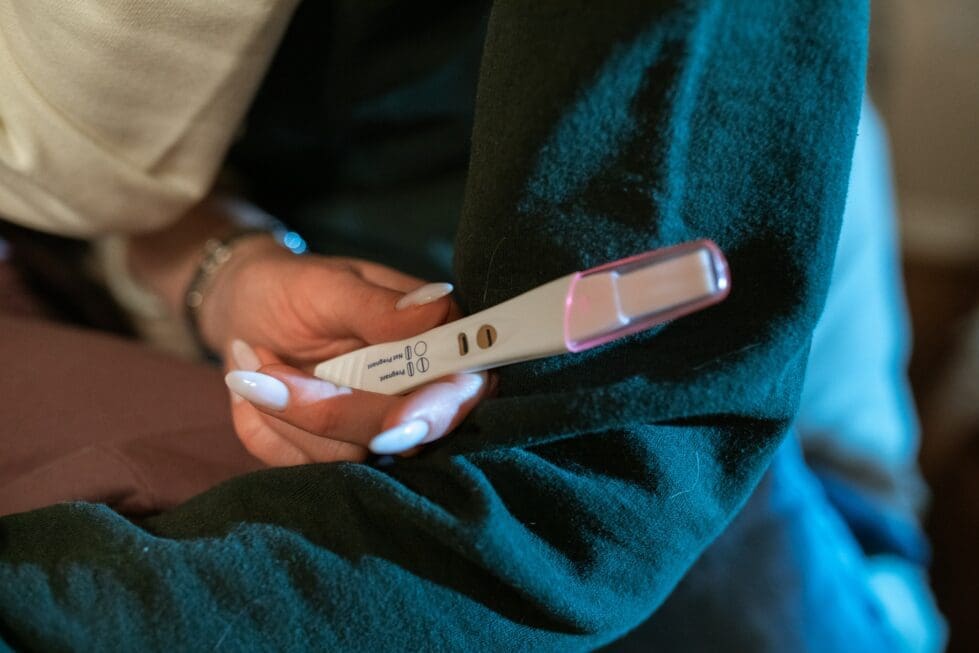

Bill would change the word woman to person as it relates to maternal health.
Photo by Rdne Stock project, Pexels
Republicans and Democrats went back and forth in arguing about the definition of woman in a maternity health bill, but all agreed on the need to raise awareness about human trafficking.
Senate Substitute 1 for Senate Bill 106, sponsored by Sen. Kyle Gay, D-Elsmere, would replace the words “woman” and “women” with “person” and “people” in the Delaware code on maternal health and also change the term maternal depression to perinatal mood and anxiety disorder.
The bill’s number was changed from Senate Bill 106 about half an hour before the Senate came into session on Thursday.
While both bills are similar, the substitute removes reference to the Diagnostic and Statistical Manual of Mental Disorders and adds information on perinatal mood and anxiety disorder to anyone who is pregnant, rather than just for people experiencing symptoms of the mood disorder.
Sen. Elizabeth Lockman, D-Wilmington, said that the bill would focus on moms and dads.
“The bill also updates the language to ensure that we are not just focusing on moms but we are also recognizing that one in 10 dads will develop postpartum depression and up to 18% of new dads will develop clinically significant anxiety disorder. So by ensuring that moms and dads are both getting the help that they need, we can better serve the mental health concerns of our constituents.”
The bill passed 14 to 6. It now will go to the House.
Sen. Brian Pettyjohn, R-Georgetown, said that the gender silencing legislation the Senate passed, Senate Bill 97, has an exemption for areas where references to gender are necessary. He wondered why that wouldn’t apply with Senate Substitute 1.
Sen. Eric Buckson, R-Dover, said he was upset about being given the substitute bill so soon before voting on it and doesn’t want the legislature to change the word “woman” to “person”.
“When I’m presented with a bill that asks me to strike maternal and women from pregnancy, childbirth and motherhood, I’m not doing it,” he said. “It’s not my intent to disparage anybody,” Buckson said. “It is simply to say that words matter and so do moms and motherhood.”
Sen. Dave Lawson, R-Marydel, said he feels the bill is demeaning to women.
“It puts me in quite a quandary here,” Lawson said. “You know, my mother, my wife and daughter are all women. To strike them from a bill that absolutely involves them directly and put in “person,’ certainly is demeaning to every woman.”
Her voice cracking, Gay said that the bill is important because it increases awareness for people who are struggling before, during and after childbirth.
“I am a woman. I am a person,” Gay said. “I use she her pronouns and I don’t feel that this language takes away any of that about me, or people that I sat next to in a breastfeeding class or a birthing class. This language recognizes the humanity of that struggle, and that struggle can touch so many people. And I don’t want the laws of our state to cut people out of the opportunity to be seen in that struggle.”
Pettyjohn said he appreciates the intent of the bill but feels if it’s trying to be inclusive, it shouldn’t just apply to the person giving birth, but to the people around them as well.
“Change that definition there so that we can be more inclusive, not only, the person who has given birth but the support system around that mother…The intent of the bill is something I’m pretty sure we can all support,” Pettyjohn said. “I’m just asking for a pause so we can make sure that the…language is inclusive of the intent that I know that you have, and that alleviates the concerns.”
Lawson said that he would have a hard time accepting someone who claimed to be a woman if they didn’t have the right genitals.
“I rolled with a fire company quite often…was in a situation in the middle of the railroad tracks where a lady was giving birth,” Lawson said. “I can tell you that if this person claimed to be giving birth, and we pulled up the blanket and there was a penis, I think we wouldn’t accept that claim…If you claim to be something that’s one thing. But those who are, are.”
The bill, which doesn’t require a fiscal note, has 19 additional sponsors and cosponsors, all Democrats except for Rep. Ruth Briggs King, R-Georgetown.
The Senate also unanimously passed a bill on human trafficking.
Senate Substitute 1 for Senate Bill 43, sponsored by Sen. Bryant Richardson, R-Laurel, would increase the number of places that signs raising awareness about human trafficking would have to be placed.
The signs, which must have centralized human trafficking hotline information on them and be at least eight inches wide and 11 inches long, would need to be prominently displayed in over a dozen different types of locations within three years of the bill passing.
Those locations include:
- Adult entertainment facilities.
- Job recruitment centers.
- Hospitals.
- Wellness centers.
- Domestic violence shelters.
- Residential child care facilities.
- Hotels.
- Convenience stores along major highways.
- Gas stations along major highways.
- Casinos.
- Restaurants with a liquor license.
- Poultry processing plants.
- Bus or train stations.
- Bars.
- Massage establishments.
- Shopping malls.
A fiscal note for the bill anticipates it will cost $69,378 for the 2024 fiscal year, $88,867 for the 2025 fiscal year, and $90,339 for the 2026 fiscal year.
While the signs would be provided to each location free of charge, the fiscal note doesn’t specify how much each sign will cost.
The bill passed unanimously. It now goes to the House.
Share this Post



